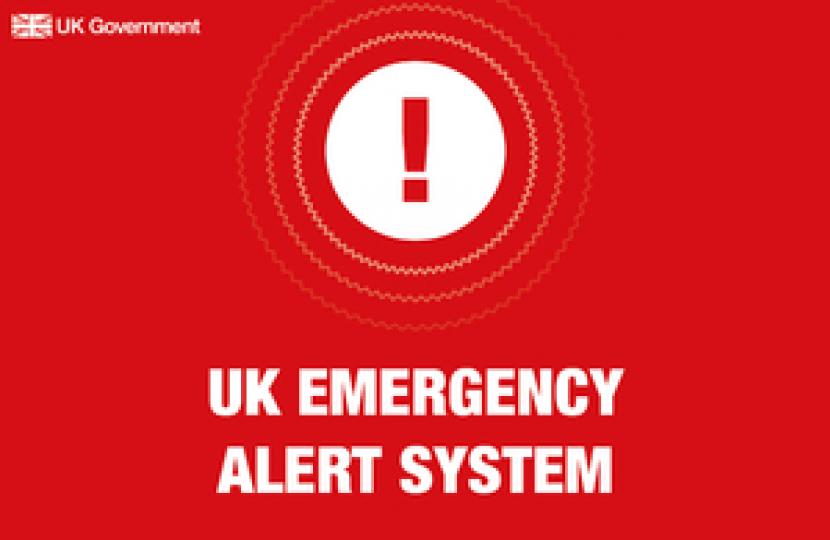
With one week to go until the UK-wide test of the Emergency Alerts system, the text of the alert has today been released.
- Text of the UK-wide test alert has now been released
- The test alert will take place at 3pm Sunday 23 April
- Will be received on mobile phones, along with sound and vibration for up to 10 seconds
The test alert, which will take place at 3pm on Sunday 23 April, will see people receive a message on the home screen of their mobile phone, along with a sound and vibration for up to ten seconds. The message will say:
"This is a test of Emergency Alerts, a new UK government service that will warn you if there’s a life-threatening emergency nearby.
In a real emergency, follow the instructions in the alert to keep yourself and others safe.
Visit gov.uk/alerts for more information.
This is a test. You do not need to take any action."
For the test, the public does not need to take any action - the sound and vibration will stop automatically after ten seconds. All people need to do is swipe away the message or click ‘OK’ on their phone’s home screen - just like for a ‘low battery’ warning or notification - and continue to use their phone as normal.
Best practice of Emergency Alerts in other countries have shown that they work more effectively when there is a real emergency if people have previously received a test, so they know what an alert looks and sounds like.
Chancellor of the Duchy of Lancaster, Oliver Dowden MP, said:
At 3pm next Sunday we’ll be doing a nationwide test of our new Emergency Alerts system. Getting this system operational means we have a vital tool to keep the public safe in life-threatening emergencies. It could be the sound that saves your life.
Emergency Alerts have already been used successfully in a number of other countries, including the US, Canada, the Netherlands and Japan, where it has been widely credited with saving lives, for example, during severe weather events. In the UK, alerts could be used to tell residents of villages being encroached by wildfires, or of severe flooding.
Emma Pickering, Senior Operations Tech Abuse Manager at Refuge, said:
Next week, the Government plans to send a test alert to all devices including tablets as well as phones. These alerts will come through as a loud siren even if devices are on silent, and could alert an abuser to a concealed device. Refuge’s Technology-Facilitated Abuse and Economic Empowerment Team have put together two videos on how to turn these alerts off, both on Android phones and on iPhones for anyone that is concerned that these alerts will put their safety at risk.
We want to ensure as many survivors as possible know how to ensure these alerts are turned off on their hidden devices. We have more information on securing your devices – for example your location settings or privacy settings – on refugetechsafety.org.
The Government has also worked with the transport sector and organisations such as Highways England to make sure drivers are aware of the alert and they follow the normal rules as when receiving any phone call or message; that they do not look or touch their phone until it is safe to do so.
Emergency Alerts will transform the UK’s warning and informing capability; by working with mobile broadcasting technology it will provide a means to get urgent messages quickly to nearly 90 percent of mobile phones in a defined area when there is a risk to life, and provide clear instructions about how best to respond.
The system will be used very rarely - only being sent where there is an immediate risk to people’s lives - so people may not receive an alert for months or years.

